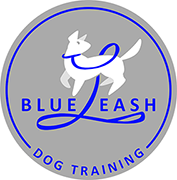Is potty training a rescue dog harder than potty training a new puppy?
There is no straight answer to this question as it depends on the situation and the individual. There are certain factors that are more likely to affect rescue dogs, but being a rescue dog doesn’t make them a victim of all or any of these factors by default, nor susceptible to the issue as an individual. The good news is, sans medical issues, every kind of dog can be potty trained. Read on to gather the knowledge you need to help your dog overcome obstacles from their past.
Factors that can influence a rescue dog's habits
No previous potty training
Seems obvious, but not having any guidance before will have an effect on a rescue dog’s potty habits. A rescue dog may have come from a situation where care was not taken to potty train. Don’t let this discourage you though, as usually you have no idea what a rescue dog went through before coming into your home. For all you know, they were lovingly potty trained before they lost their home, and your dog just needs to re-establish what they already learned in their living space.
Previous space limitations
Dogs naturally do not want to poop or pee where they sleep. A dog that has no potty training but access to the outdoors will likely choose to eliminate outside. Some rescue dogs come from a situation where they had no choice but to eliminate in their sleeping space, like if they were crated for too long or even in a puppy mill situation where their living space was a crate. These dogs can become accustomed to the smell and feel of feces and urine near them or in their fur. Fortunately, they can quickly become accustomed to a clean place and feeling clean, which is their natural tendency when it comes to elimination anyway. A dog coming from such a scenario may only need a day or two more potty training than a new puppy.
Previous space freedoms
Some dogs might have come from a situation where they had unlimited access to the outdoors, so when they needed to go, they just went outside and did it. Dogs like this haven’t developed the muscles needed to hold it for longer periods, so they need time not only to learn where to go, but to build the muscles required to hold on until they are let outside.
Established habits
Another perhaps obvious factor is that if a dog already has poor potty habits, they have to undo the bad habits in before building the good habits. But the truth is, this should have very little affect on your rescue dog’s ability to be potty trained. Dogs don’t live in the past and don’t get as tied to their previous experiences as humans do. In addition, a brand new puppy from a breeder could come with some bad habits to break as well.
Trauma
In some cases, a rescue dog may have suffered abuse from the humans in their previous life. The abuse may have been related to potty training, such as hitting, kicking, or even just yelling at a dog for eliminating in an inappropriate place. This treatment can lead dogs to be fearful of humans and more relevantly, wait until you’re not present (or hide) when they eliminate in the house.
How much can these factors affect my rescue dog’s ability to be potty trained?
It’s impossible to tell, even if you’re lucky enough to have a detailed history of your rescue dog’s former life, there’s no way to know how much each thing would affect your dog as an individual. And lucky for you, regardless of the past, the most effective potty training techniques are the same for new puppies and rescue dogs (the biggest difference being a very young puppy’s more limited ability to hold their pee for extended periods).
How you handle potty training has miles more influence than a dog’s past, so focus on making a plan and sticking to it. Check out our Free Webinar for techniques and don’t beat yourself up for any unsuccessful past efforts. Just like your dog’s past life, your previous efforts don’t have to heavily influence your dog’s future success!
